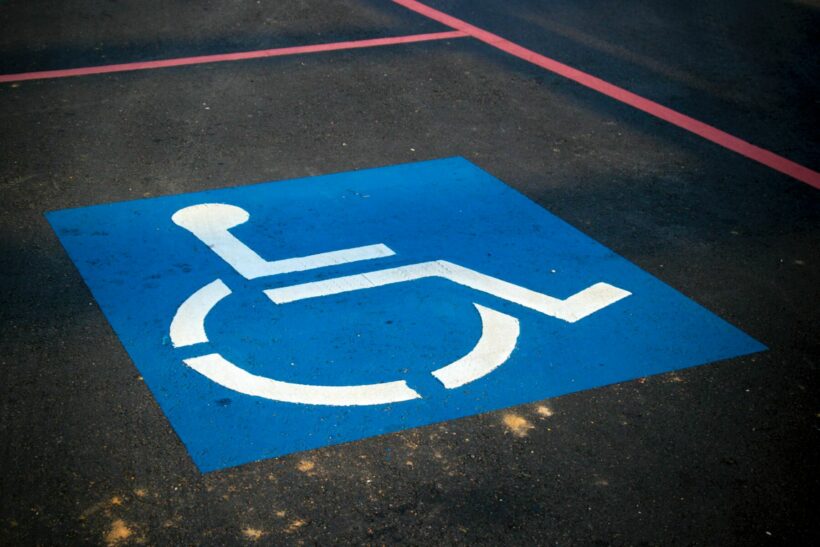Travelling in Thailand with a disability? A word of caution

Thailand is not an easy place to visit if you have health issues or other physical disadvantages. While major hotels and tourist hotspots have services for people with disabilities, public transportation in rural areas is scarce and frequently difficult for wheelchair users. Accommodations and accessibility in Thailand for travellers with mobility inconveniences continue to fall well behind countries such as the United Kingdom, the United States, Australia or any Western country. That doesn’t mean you can’t enjoy Thailand if you have a disability, but you’ll need to plan carefully.
Getting around the Bangkok can be incredibly challenging. The sidewalks are uneven, and few buildings have ramps or handrails to help people with disabilities get around. There are few audible indicators for the blind at road crossings, and guide dogs are rare. Thais will gladly help if you ask nicely. Language barriers may occasionally happen, causing just as many problems as physical obstacles.
Editor’s Note: We have little experience with the topic of this article. In short, we aren’t experts by any means! Rather, we see the need to shine a light on the lack of disability-friendly infrastructure and facilitates in Thailand as an impetus for change. This article is written from our own non-profession observations and is intended as food for thought. We hope it’s helpful for those to whom it applies. And we intend to continue covering this topic in the future.
Transportation
The BTS Skytrain and MRT underground in Bangkok are accessible by lifts, making it a good option. The ticket platform and the train platform are located on different floors, making it a hassle, but not impossible. Also, it provides excellent coverage of the city and will allow you to travel almost everywhere. Travellers with disabilities can request guidance, and assistance will be promptly provided. Wheelchair sections and locks are available on the trains.
Most taxis in Bangkok rely on gas, with the gas tank installed in the trunk. Because there is a limited storage area, a foldable wheelchair may not always fit. We recommend you download an app called Grab. This is like Uber. You have many options and benefits. You can pick and choose the size of the car, where you’re going, and when you need a ride. Keep in mind that it’s more expensive if you want an SUV rather than a sedan.
Even the most dedicated and courageous travellers with disabilities experience difficulties when it comes to boat rides in Thailand. In Bangkok, taxi boats are generally busy, and there isn’t much time to get on or off the boat.
If you wish to tour Bangkok’s canals, you can hire your own personal longtail boat, but you must be with someone who can help you get in and out of the boat if needed. Some of Thailand’s ferries can be tough to access for disabled passengers, as steps are occasionally installed instead of ramps.
Accommodation
Travellers with disabilities will often find good services and support in newer hotels and more expensive hotels. They will likely find good services in newer, more expensive hotels. Sadly, many of Thailand’s affordable hotels lack elevators, so stairs are a problem. Make sure to check ahead of time.
There are several hotels in the capital with rooms designed exclusively for customers with disabilities, so you can have peace of mind about staying somewhere that’s as convenient as it is pleasant and comfortable.
Shopping Malls
Almost every Thai city has at least one shopping centre. There are millions of them in Bangkok. When you’re out and about travelling, these shopping malls are usually the ideal location to stop. The air-conditioned malls provide a laid back atmosphere from the outdoor heat.
When it comes to accessibilities in shopping malls, most of them have lifts, so shopping inside should be no problem. Most of them also have bathrooms with partitions for people with disabilities.
Attractions
Some of the major tourist destinations are not handicapped friendly. Generally, it takes many steps to historic sites and temples with no ramps available most of the time, so getting to these areas will be incredibly difficult unless you can walk up a few steps or are accompanied by someone who can assist you.
Pavements
Pavements should be avoided. It’s also a common joke among Thais. Most of the pavements are uneven, full of cracks, bumpy and have more chances of slipping. There some some small ramps but it’s better to avoid it completely. You’ll often see motorbikes taking advantage of a rare stretch of sidewalk more than pedestrians.
Final Thoughts
In short, Thailand is not a disability-friendly country in terms of infrastructure and facilities. It might be a little easier to get around in larger cities, such as Bangkok’s downtown area. But compared to anywhere else in the world, the Thais are significantly more friendly and willing to help. The kindness of friendly strangers can compensate for a lack of disability accessible streets, buildings and transportation.
What’s your take?
Have you experienced the challenges of travelling or living in Thailand with a disability? If so, please share your thoughts in the ThaigerTalk comments section down below. Your voice is important to helping us understand the story, so we can cover it more thoroughly in the future. Thank you!
Latest Thailand News
Follow The Thaiger on Google News:


























